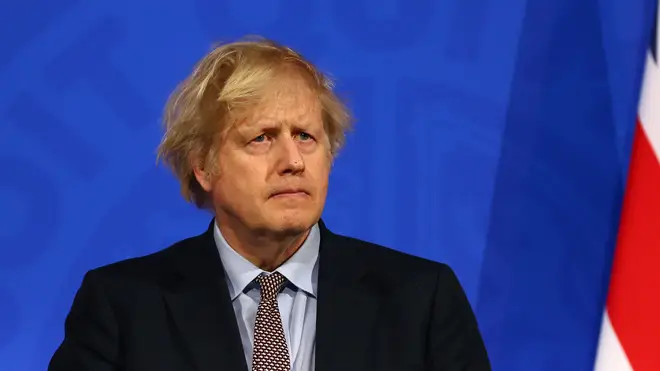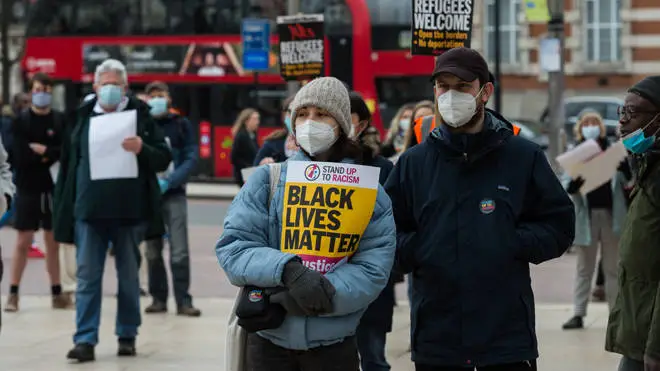
Lewis Goodall 10am - 12pm
31 March 2021, 13:48 | Updated: 31 March 2021, 14:31

The Prime Minister has hailed a controversial race report as an "important piece of work" and promised to consider the recommendations suggested "in detail".
The 264-page report by the Commission on Race and Ethnic disparities found that Britain is a model to other countries for diversity because of successes in areas like education, and a shrinking ethnicity pay gap.
The full report did however find that overt racism persists in the country, particularly online, and more work still needs to be done. It sparked a major backlash and the government has been accused of 'whitewashing' the issues faced by ethnic minorities in the UK.
Read more: 'Britain not rigged against ethnic minorities' - landmark report sparks major backlash
The full report makes 24 recommendations, which the commission says have "tried to account for the messy reality of life" and are aimed at all disadvantaged people.
After the release of the full report at 1130am today, Boris Johnson said: "The Commission on Race and Ethnic Disparities was launched to conduct a detailed, data-led examination of inequality across the entire population, and to set out a positive agenda for change.

Sir Keir Starmer 'disappointed' by findings of race report
"I want to thank Dr Tony Sewell and each of the commissioners for generously giving their time to lead this important piece of work.
"It is now right that the Government considers their recommendations in detail, and assesses the implications for future government policy.
"The entirety of government remains fully committed to building a fairer Britain and taking the action needed to address disparities wherever they exist."
The recommendations include increased scrutiny of body-worn police footage of stop and searches, more detailed, publicly available data, more local recruitment within police forces, and improved training to help officers interact with the communities they serve.
A pilot should be developed in four police areas where young people with low level possession of class B drugs should helped by public health services and diverted away from the criminal justice system, it recommends.

It also calls for an Office for Health Disparities to be established to tackle health inequalities, and for a review on action to address the underlying issues facing families.
The Commission on Race and Ethnic Disparities said geography, family influence, socio-economic background, culture and religion all impact life chances more than racism.
It has criticised the "confusing" way the term "institutional racism" has been applied, saying this should only be used when deep-seated, systemic racism is proved and not as a "catch-all" phrase for any microaggression.
In a foreword to the report, commission chairman Dr Tony Sewell said some communities are haunted by historic racism and there was a "reluctance to acknowledge that the UK had become open and fairer".
He said the review found some evidence of bias, but often it was a perception that the wider society could not be trusted.
Dr Sewell wrote: "Put simply, we no longer see a Britain where the system is deliberately rigged against ethnic minorities.
"The impediments and disparities do exist, they are varied, and ironically very few of them are directly to do with racism."